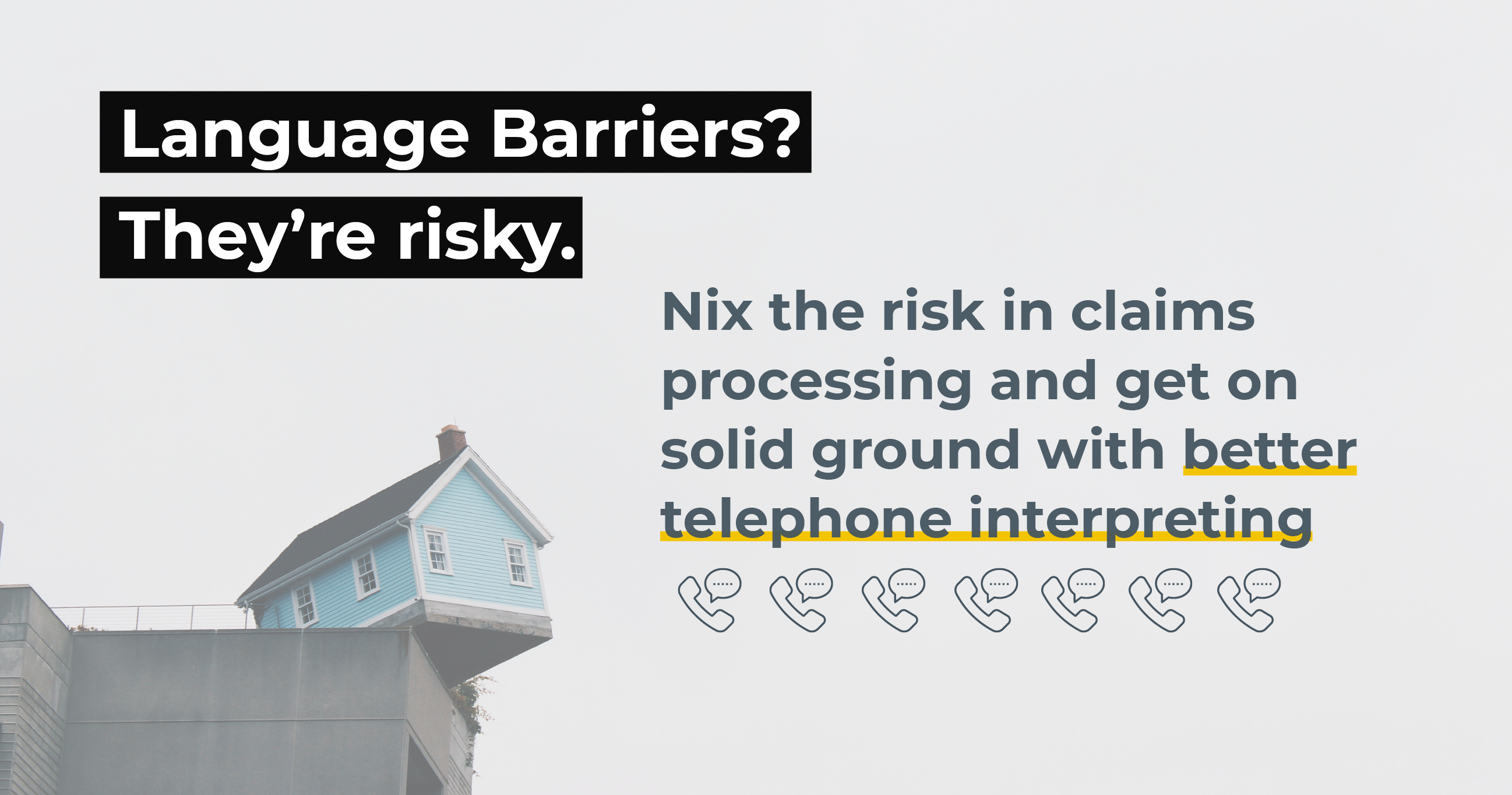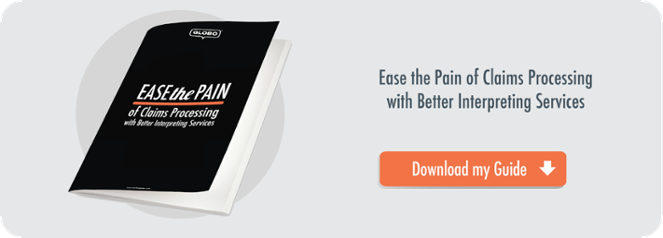
When your insurance business depends on properly handled claims, you've got to be conscientious of communication barriers. These barriers will throw some nasty wrenches in your processes.
The language barrier isn’t just a “communication thing.” It’s an everything thing, threatening aspects of your business that you may not have anticipated – converting unsuccessful interactions into mishandled claims, inflated overhead, poor reputation and scant customer retention.
That serious possibility is now a serious reality – becoming more so every single day, in fact, due to the 61.8 million (and growing) Americans speaking a language other than English at home. So the odds are undeniable: Your business likely has policyholders who don’t speak English well enough to communicate effectively with your call center agents and claims adjusters.
(And if you haven’t seen it, it’ll happen tomorrow. Or the next day. Or it’s already happening and you’re just not aware – which begs the question, how are your agents and adjusters handling these fragile situations?)
When you’re processing claims for Limited English Proficient (LEP)* policyholders, your risks of costly errors are significantly higher. Let’s explore how unreliable interpreting services inflate those risks – picking them up from First Notice of Loss (FNOL) and carrying them through your entire claims management process.
*An individual who is Limited English Proficient is considered to know English less than "very well".
Unreliable Language Services Snowball Your Claims Processing Risk
- Slow Connect Times → Foundation Of Agitation
If your telephone interpreting service has slow connect times, your policyholder is starting off on an agitated foot when it (finally) comes time to tell his or her story.
- Lack of Standards → Poor Quality, Uncertain Reports
A service provider without rigorous professional standards for their interpreters affects your company's claim process negatively: Not only will you experience a dip in overall interpretation quality, resulting in miscommunication with your policyholder, but you will also be working with interpreters who are unfamiliar with specific industry terminology. This seemingly simple factor culminates an initial report that’s missing key information and details of the incident, which blights the rest of the claims processing procedure.
- Bad-Faith Action → Reputation, Legal Costs
If, at any point, serious miscommunication arises due to low-quality interpretation services and a carrier denies a claim on that basis, you run the risk of bad-faith action. Even if your company is found to have acted in good faith throughout the whole process, the legal costs and time wasted fighting the lawsuit adversely affect your bottom line.
- Fear Of Bad Faith → Loss Ratio, Profit Loss
Even just the fear of bad-faith allegations stemming from communication barriers piles on the risk. Many companies decide their risk of a lawsuit is too high and, despite believing they should not be liable to settle the claim, do so anyway – often paying out much larger amounts than they should. Needless to say, this higher loss ratio takes a bite out of profits.
- Cutting Corners → Family Interpreters, Concocted Stories
If your call center agents or claims adjusters are agitated by the low-quality telephone interpreting that offers slow connect times and interpreters who do not understand industry terminology, they may decide to cut corners and allow individuals with limited English proficiency to have family members interpret for them. These “interpreters” often act more like advocates or editors, misrepresenting or inflating their relatives’ stories to concoct narratives for larger settlements. This makes it even more difficult for your employees to find out the real truth about an insurance claim.
Leading Language Services Unpack Risk Before It Gets Rolling
When you work with the right language services provider, connect times are speedy, standards are in place, interpretation quality is on point and professionalism never wavers. You feel secure in your interpretation support, so you don’t feel that pressure to settle claims you know you don’t deserve.
An outstanding provider does not stop with service based on speed, standards, quality and professionalism, but amplifies your security with technology – providing you with every detail of your interactions with limited English speakers and creating a call data trail that is easily accessible should a policyholder or third party try to make an erroneous claim.
This not only lowers your risk of bad-faith claims and decreases your loss ratio, but it also helps you create stronger bonds with non-English-speaking customers, leading to customer satisfaction, and ultimately, customer retention.
Check out our guide below to learn more about how high-quality language support crushes the risky language barrier before it has a chance to threaten your insurance business.

